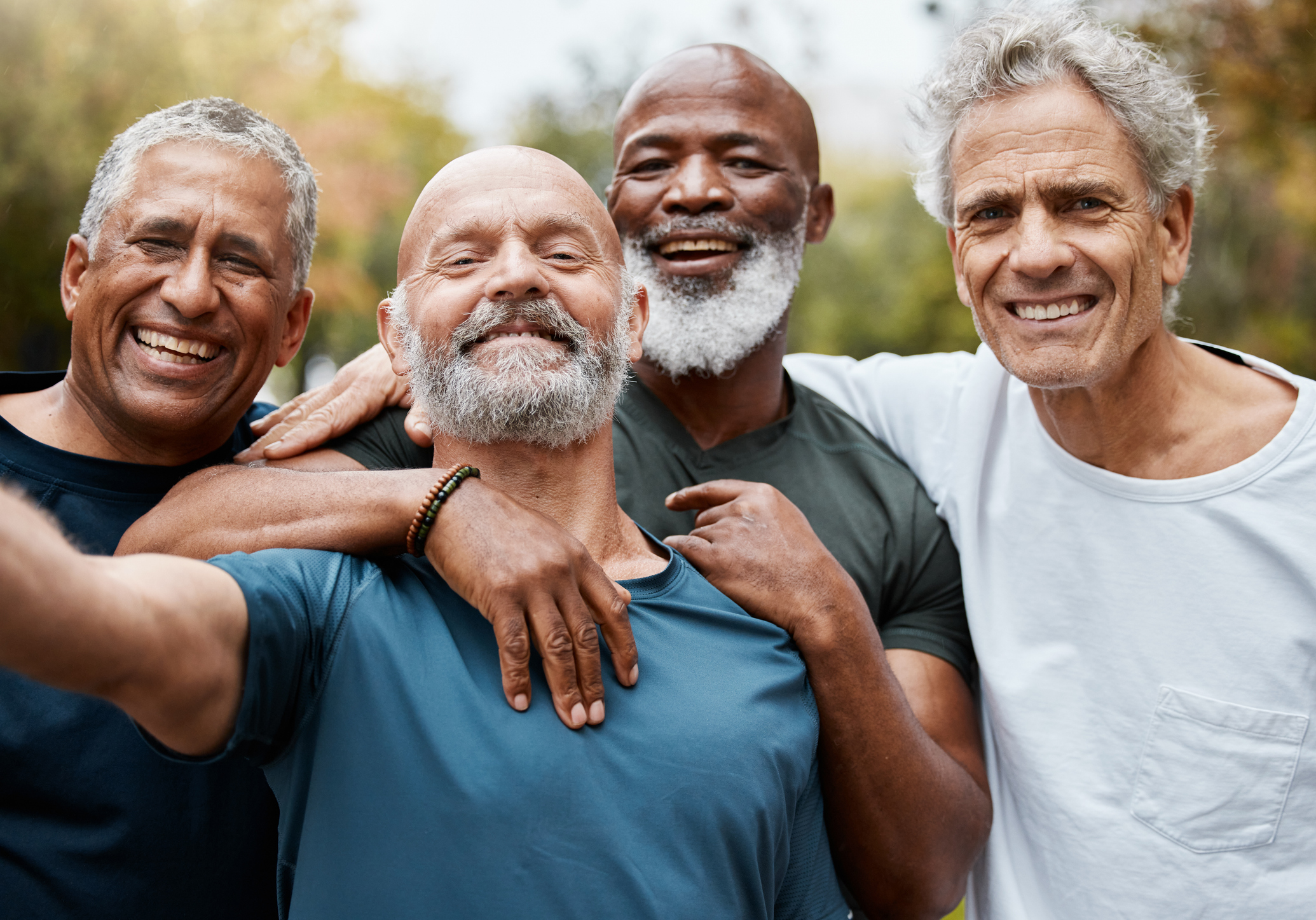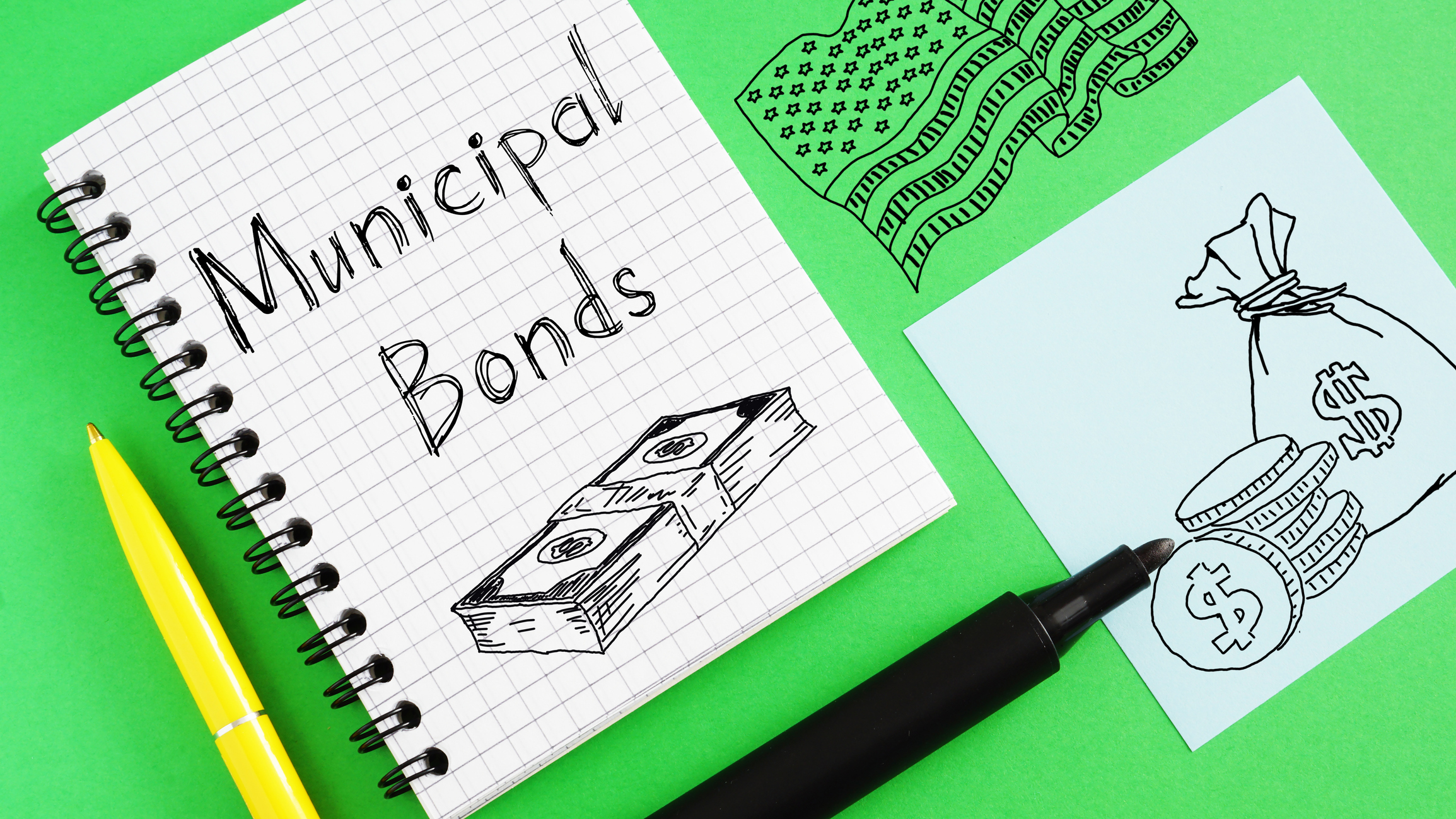Why So Many Men are Bad at Retirement
Older men today came of age amid the social upheavals of the 1960s and ’70s, but their formative years were deeply planted in the traditional world of segregation and sexual stereotyping.


Ronald Levant, 81, remembers starting to feel like a man when he threw his first successful punch, fighting the bullies who tormented him. He was nine.
For Derek Griffith, 53, it wasn’t until he finished his Ph.D. in his early thirties, moving from the secure bubble of academia into full self-reliance.
For Ken Druck, 74 being a man means giving himself permission to be a work in progress, and that includes making mistakes and learning to be a better human being.

Sign up for Kiplinger’s Free E-Newsletters
Profit and prosper with the best of expert advice on investing, taxes, retirement, personal finance and more - straight to your e-mail.
Profit and prosper with the best of expert advice - straight to your e-mail.
What all of these men agree on is that what it means to be a man in the 21st century is to live in a time of social changes and challenges — from medical issues to social connections to divorce rates — that deeply affect life in retirement or even the ability to retire.
Older men today can experience a kind of psychic bifurcation. They came of age amid the social upheavals of the 1960s and ’70s, but their formative years were deeply planted in the traditional, patriarchal world of suburbs, segregation and sexual stereotyping.
And as they aged, their roles in the family and society became less obvious. Retired, they no longer had jobs to define themselves. Their health deteriorated. Relationships outside the home frayed, and their positions in the family eroded as wives and grown children assumed greater responsibilities.
The result: Men, who tend to die earlier than women, spend their time in retirement grappling with intensifying mental health issues and often find themselves with few friends or relationships outside their immediate families.
Fixed in another era
“Men are basically stuck in the 1950s model of masculinity,” says Levant, who has been studying the psychology of men for more than 40 years. For many years, he directed the Fatherhood Project at Boston University, helping men to become better fathers — something he learned when he retained partial custody of his daughter after his divorce.
Men, particularly those in their seventies and eighties, spent a childhood with Leave It To Beaver and Father Knows Best as role models. Now that they are retired, they are seeing a life where women went through major social change — from single digit employment in the 1950s to 50% of the labor force by 1985 — but for many men, their social world stood still.
“For the first time, there were intergenerational conversations between mothers and aunts and daughters about changing roles and how to navigate gender in this new world,” Levant says. “Nothing like that occurred for men.”
It has been a challenge, particularly for older men, to find new role models. While Ted Lasso may be a good fit for the younger generation of men, it’s challenging to find a role model for male retirement in 2024.
In his books, such as The Secrets Men Keep and Courageous Aging, Ken Druck addresses the unwillingness of many men to discuss their struggles, from mental health to medical challenges to the social changes that happen with aging. But he thinks that things are starting to improve.
Many men, he says, are learning to shed their expectations of “what it means to be a man” that they learned when they were children.
“There are some men who did the work, worked on their relationships with women, and became aware of their own insecurities, and what a ‘masculine’ behavior was, men who were interested in diversifying their portfolio of their identity and their sense of meaning and purpose,” he says.
How did older men get here, and what can be done to get them out?
How men's health relationship impacts retirement

Many men still aren’t taking care of themselves physically, and don’t go to the doctor regularly, resulting in higher rates of disease and earlier deaths. But now researchers realize it’s partly due to the approach in the doctor’s office, and access to telehealth and medical information online has allowed for easier access and improved awareness.
Men die earlier, with an average life expectancy of 73.5 years, according to a 2021 study. That’s about five years earlier than women in the U.S. One study found that men who considered themselves “traditional” men — unemotional and self-reliant — were more likely to ignore medical problems, and suffered worse health outcomes than women. And the problem gets worse as they get older. About 74% of men 55 and older go to the doctor for an annual check-up, compared to 43% of men age 35-54 and 26% of men age 18-34.
Stanton Honig, director of the Male Reproductive Health and Sexual Medicine Program at Yale, believes this disparity starts as children, when boys are brought to the doctor by their parents. Women go to the ob/gyn for yearly appointments when they hit puberty, but men don’t have those same annual screenings. They don’t think about health problems in their early years, even though some serious conditions such as testicular cancer can appear in the twenties or early thirties.
“As we get older, we focus a little bit more on prostate, colon, blood pressure, things like that,” Honig says, adding that prostate cancer screening usually doesn’t begin until 50, unless the patient has another risk factor such as being African American or a close relative who had prostate cancer.
Honig says one thing that has changed for the good is the ability to access information on the internet, particularly concerning fertility issues. Men are starting to take better care of themselves and visit doctors earlier to address issues. “So, yes, I think that, generally speaking, men are being a little bit more proactive,” he says.
Derek Griffith, a public health psychologist and the founder and director of the Center for Men’s Health Equity at Georgetown University, agrees that men aren’t as good at seeking medical help as women, but he also believes that many medical practitioners are not adept at working with male patients. Health becomes a concern to men, he says, when it clearly relates to their lives outside the examining room.
Studies show that men say they are most motivated to go to the doctor when their health starts to interfere with work, becomes a burden on their family or affects their sex life.
“It’s not that my blood pressure is bad, it’s because my blood pressure being bad affects my ability to work, that affects my energy level, affects my ability to be intimate with my partner, affects things that I care about,” says Griffith. “And so unless we connect those dots, then we're not reaching men.”
Men's identity in retirement

One big, difficult issue retired men face is redefining themselves. A man may spend 30 or 40 years in the working world and come to think of his job and himself as one-in-the-same — as Saul Goodman, lawyer, or Charles F. Frost, advertising executive, or Marcus Welby, doctor. There’s a reason, after all, that so many surnames derived from the jobs men performed — miller, smith, baker.
But come retirement, he’s none of those. At best, the man is a retired lawyer, a retired executive or a retired doctor. At worst, he feels like a nobody.
All those hours at the job can exact a lasting toll both mentally and physically, as men are more likely to take job stress to heart — literally. One study found that men in stressful jobs who felt unappreciated had twice the risk of heart disease, the number one killer of men across most ethnic groups.
The identity issue may become less acute as younger baby boomers, Generation Xers and older millennials transition from work to retirement. They’ve experienced a lot more job hopping — and job eliminations — than their fathers did so they may not be quite so invested in their working identities.
Many younger men are purposefully pulling back from work, putting in fewer hours — a trend that continued even after the emergency of the pandemic was over. The pullback isn’t huge, but it’s there — around 14 hours less per year, according to the National Bureau of Economic Research. Men in the two highest earning brackets dropped the most hours in 2022 — 77 fewer hours per year in 2022 compared with 2019, according to one analysis.
“There are a whole lot of men who are moving in and out of the labor market, and there are many men who seem to leave altogether at different points,” says Sarah Damaske, a professor of sociology and labor relations at Pennsylvania State University.
In a 2023 study, Damaske looked at 4,538 men who were born between 1957 and 1964 — late baby boomer years. She looked at their employment situation every two years between the ages of 27 and 49 (calendar years 1984-2021).
She found that just 41% of those men maintained steady employment during their careers, while 25% had bouts of unemployment and 21% were employed on-and-off, with “early exits” from the workforce. Researchers were surprised at how few men started working full-time early in their careers and stayed with that company into their fifties. Many took a long time to find a stable job.. This instability means that fewer men will feel financially able to retire.. And not a small number have given up entirely.
“But they still talked about themselves as workers, right?” says Damaske. “They would say ‘I’m in between things,’ and there is a lot of good research that suggests that this state is bad for men's health and bad for their self esteem.”
Isolation and loneliness in retirement
When envisioning retirement, many men imagine traveling, playing with grandchildren and driving that sexy convertible they can finally afford. The reality? For those over 70, 94% of adults watch television every day, with nearly 10% spending more than nine hours a day staring at the shows.
It’s important to get out and see people, try new things and find ways to address the hard issues that come with age, whether it’s dealing with illness and losing loved ones or the general loss of control over life — like driving.
There is no question that men struggle with mental health issues. Although men make up 50% of the population, they account for 80% of suicides, and male suicide rates were consistently highest in men above age 75. Older men are also far less likely to seek support. In 2021 only 18.9% of men over 65 sought mental health treatment, compared with 23% of men aged 18-44.
Robert Whitley, an associate professor of psychiatry at McGill University in Montreal, said job stress plays more of a role in men’s mental health, whether it’s a rough commute or a tough boss or retiring from a job that filled the hours. For men in particular, mental health care might not just mean therapy or medication. Much of Whitley’s research shows the importance of things like physical exercise, yoga, meditation, religion and spirituality.
Getting men together

“I work a lot with military veterans and there’s this amazing new program, it's kind of like outdoor therapy, where people go out into the wilderness for a weekend or week,” Whitley says. “The older ones help the younger ones with skills they don’t know, and the younger men may show the older ones a new skill or trick to say, setting up a tent.”
Very often, men feel more comfortable chatting while doing an activity, compared to the formal set-up of a therapist’s office, but it’s hard to make friendships. One survey found that 15% of men had no close friends.
Men’s Sheds, whose motto is “Shoulder to Shoulder,” started in Australia in 1995 to give retired men a purpose and a community. Usually housed in a community center, each “shed” works on a specific community project, like fixing toys for a children’s hospital or building benches for a local park.
Although the organization has more than 2,000 sheds worldwide, there are only 27 groups in the U.S., reports Glenn Sears, 89, a retired engineer who founded the first Men’s Shed in Honolulu in 2016. The group has about 130 members, and is focused on building picnic tables for elementary schools.
Most of the men are over 60, but they are open to younger members.
“I think that men who come to the shed tend to be completely relaxed, open to getting a conversation started,” says Sears. “We didn’t know each other at all when we started, and now I have all these really good friends.”
Note: This item first appeared in Kiplinger’s Retirement Report, our popular monthly periodical that covers key concerns of affluent older Americans who are retired or preparing for retirement. Subscribe for retirement advice that’s right on the money.
Related Content
Profit and prosper with the best of Kiplinger's advice on investing, taxes, retirement, personal finance and much more. Delivered daily. Enter your email in the box and click Sign Me Up.

Dawn Fallik is a Philadelphia-based reporter who specializes in data analysis. She was a reporter for The Philadelphia Inquirer, The Wall Street Journal and The Associated Press. She has served on the Pulitzer jury and is a tenured professor at the University of Delaware.
-
 Stock Market Today: S&P 500, Nasdaq Hit New Highs on Retail Sales Revival
Stock Market Today: S&P 500, Nasdaq Hit New Highs on Retail Sales RevivalStrong consumer spending and solid earnings for AI chipmaker Taiwan Semiconductor Manufacturing boosted the broad market.
-
 Higher Summer Costs: Tariffs Fuel Inflation in June
Higher Summer Costs: Tariffs Fuel Inflation in JuneTariffs Your summer holiday just got more expensive, and tariffs are partially to blame, economists say.
-
 Can AI Help With Your Finances?
Can AI Help With Your Finances?ChatGPT and other artificial-intelligence tools will streamline certain tasks, but don't count on them to get everything right.
-
 Nine Things You May Not Know About Social Security
Nine Things You May Not Know About Social SecurityEven if you’ve been collecting benefits for years, you may have more to learn.
-
 13 Answers to Pressing Social Security Questions
13 Answers to Pressing Social Security QuestionsFrom smart claiming strategies for couples to tips on maximizing your monthly check, we have advice that can help you.
-
 Keep Tax Collectors at Bay with Muni Bond Funds
Keep Tax Collectors at Bay with Muni Bond FundsMunicipal bonds can be good insurance against inflation — and interest is tax-free. But as with all investments, understanding risk is key.
-
 Tips for Expat Retirees, From Expat Retirees
Tips for Expat Retirees, From Expat RetireesYou may enjoy a lower cost of living by moving abroad, but it requires careful planning.
-
 Why Retirees Need a Budget, According to a New Retiree
Why Retirees Need a Budget, According to a New RetireeA new retiree explains why retirees need a budget.
-
 Hiring a Financial Adviser: 10 Questions to Ask
Hiring a Financial Adviser: 10 Questions to AskWhen hiring a financial adviser, ask these 10 questions to weed out the duds and find the right person to manage your nest egg. After all, you're the boss.
-
 How New Retirees are Navigating Economic Uncertainty
How New Retirees are Navigating Economic Uncertainty‘I Picked a Helluva Time to Retire.’ Six strategies for new retirees facing a dicey stock market and unpredictable economy.